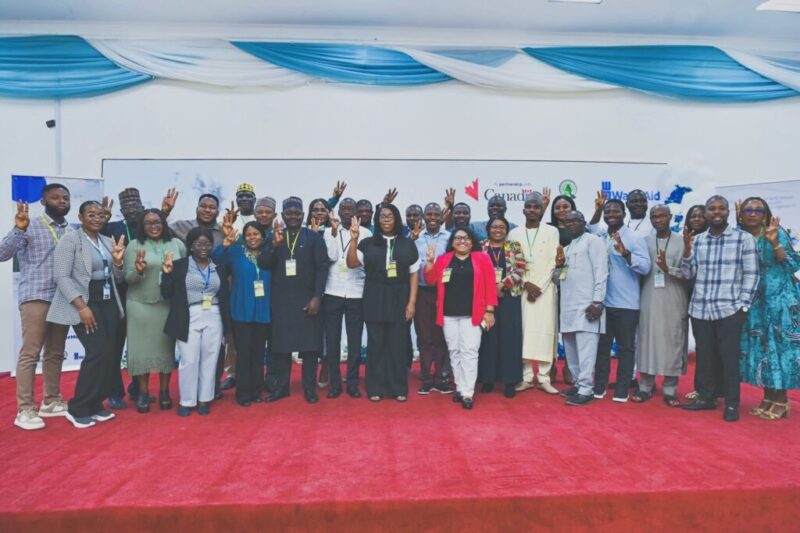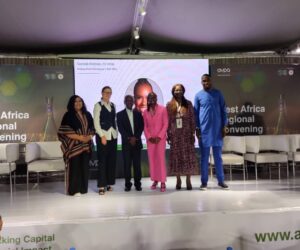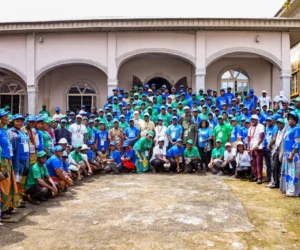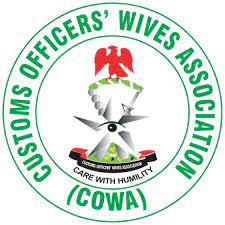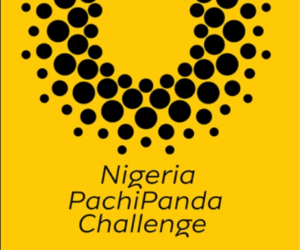By Tosin Kolade
WaterAid Nigeria, in collaboration with WaterAid Canada, on Monday launched a five-year project to improve access to Water, Sanitation and Hygiene (WASH) and sexual and reproductive health services for women and girls in Bauchi State.
The project, tagged ‘EmpowerHer’, is funded by the Government of Canada through Global Affairs Canada and will be implemented in Katagum, Misau and Tafawa Balewa Local Government Areas.
Ms Evelyn Mere, Country Director of WaterAid Nigeria, said the initiative aims to transform the lives of women and girls who face barriers that deny them dignity, health and opportunity.
She noted that in Bauchi, more than 70 per cent of schools lack basic WASH facilities, while over 90 per cent of health centres do not have clean water or decent toilets.
“These realities deepen gender inequality and limit opportunities for women and girls to reach their full potential, participate fully in society and contribute to development,” she said.
Mere explained that the project would deliver gender-responsive and climate-resilient WASH services in communities, schools and healthcare facilities.
It would also train health workers, support adolescent girls with knowledge and confidence, and strengthen government systems for sustainability.
The initiative is expected to reach more than 100,000 people directly and about 600,000 indirectly across the three LGAs.
She commended the Government of Canada for funding the project and lauded the Bauchi State Government, civil society groups, women’s organisations and the media for their partnership.
She also acknowledged Forward in Action for Education, Poverty and Malnutrition (FAcE-PaM) and the Women Development Association for Self-Sustenance (WODASS) as implementing partners.
“Our vision is a future where women and girls can manage their health and hygiene with dignity, free from stigma, and where access to clean water, decent toilets and good hygiene is taken for granted,” she said.
Mrs Elizabeth Ugoh, Director of Water Quality Control and Sanitation at the Federal Ministry of Water Resources and Sanitation, who represented the Minister, Prof Joseph Utsev, said WASH was vital to human survival and women’s empowerment.
She commended WaterAid and its partners for bringing the initiative to Bauchi, noting that the three participating LGAs would serve as models for other parts of Nigeria.
She added that the project would empower women and children with knowledge and access to services, leading to healthier families, stronger communities and improved productivity.
Also, Commissioner for Health and Social Welfare in Bauchi State, Dr Suleiman Abubakar, said the intervention was a collective effort to promote the health and well-being of women and girls.
“I commend the organisers and partners for their tireless efforts in driving this project forward. I assure you of the Bauchi State Government’s continued support in ensuring the success and sustainability of this initiative.
“Together, let us continue to work towards bold change; where women and girls can make informed decisions about their health, exercise their choices, and live with dignity,” he said.
 Mr Nanpet Chuktu, Head of Programmes at WaterAid Nigeria, said the project would directly benefit 108,161 people and indirectly reach about 600,000 women, adolescent girls and other stakeholders in 1,036 communities.
Mr Nanpet Chuktu, Head of Programmes at WaterAid Nigeria, said the project would directly benefit 108,161 people and indirectly reach about 600,000 women, adolescent girls and other stakeholders in 1,036 communities.
According to him, the direct beneficiaries include 20,717 adolescent girls, 15,537 adolescent boys in 69 schools, and 71,907 women of reproductive age through 58 health facilities.
He added that the project will also engage 344 teachers, 115 healthcare workers, 173 community health extension workers, 290 ward development committee members, 740 women from Mama2Mama groups, and more than 1,000 community leaders and influencers.
Chuktu said EmpowerHer builds on WaterAid Nigeria’s technical expertise in WASH and strong partnership with the Bauchi State Government.
He explained that the intervention follows a rights-based approach using WaterAid’s Quality Programme Standards, combining service delivery with capacity building, policy advocacy and behavioural change.
He noted that the project would also adopt the WASHFIT methodology to improve schools and health facilities, and train health workers to provide inclusive, gender-responsive services.
On sustainability, Chuktu said EmpowerHer would progressively transfer ownership to communities and government by strengthening local capacities and systems before phase-out.
He added that the project would leverage WaterAid’s hygiene behaviour change framework, governance support, advocacy and evidence-based approaches to ensure long-term impact.
“The clear exit strategy is designed to ensure that local authorities and communities can continue to provide and manage services after the project ends,” Chuktu said.
Goodwill messages were also delivered by representatives of the Ministry of Health and Social Welfare, Global Affairs Canada and WaterAid Canada. (NAN)
Edited by Abiemwense Moru
Published By
- Agriculture and Environment Desk Controller/Website Content Manager.

